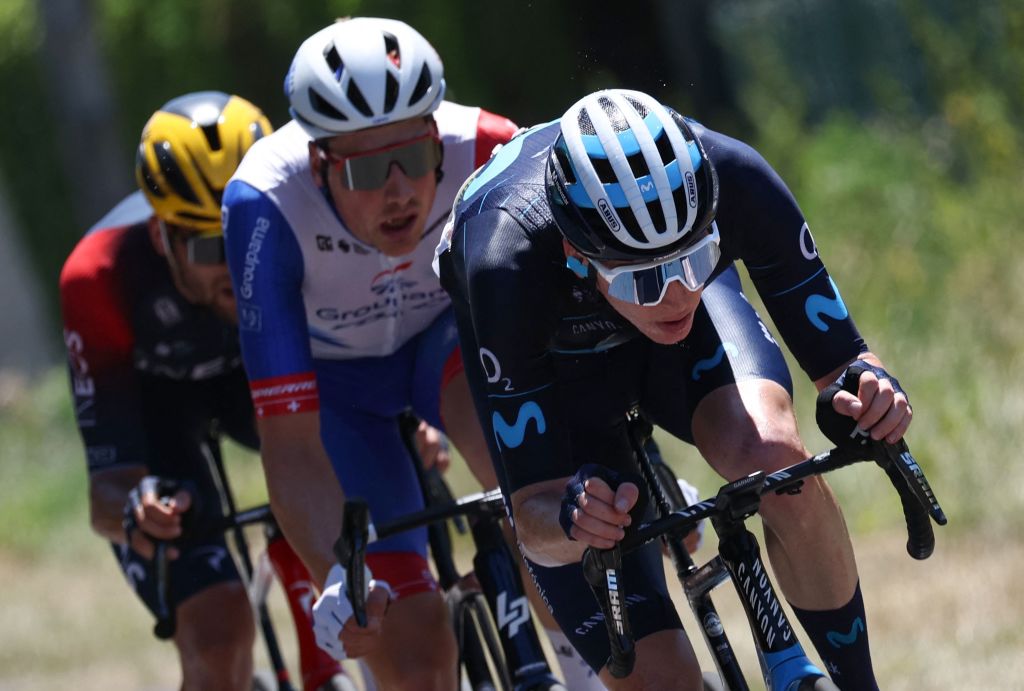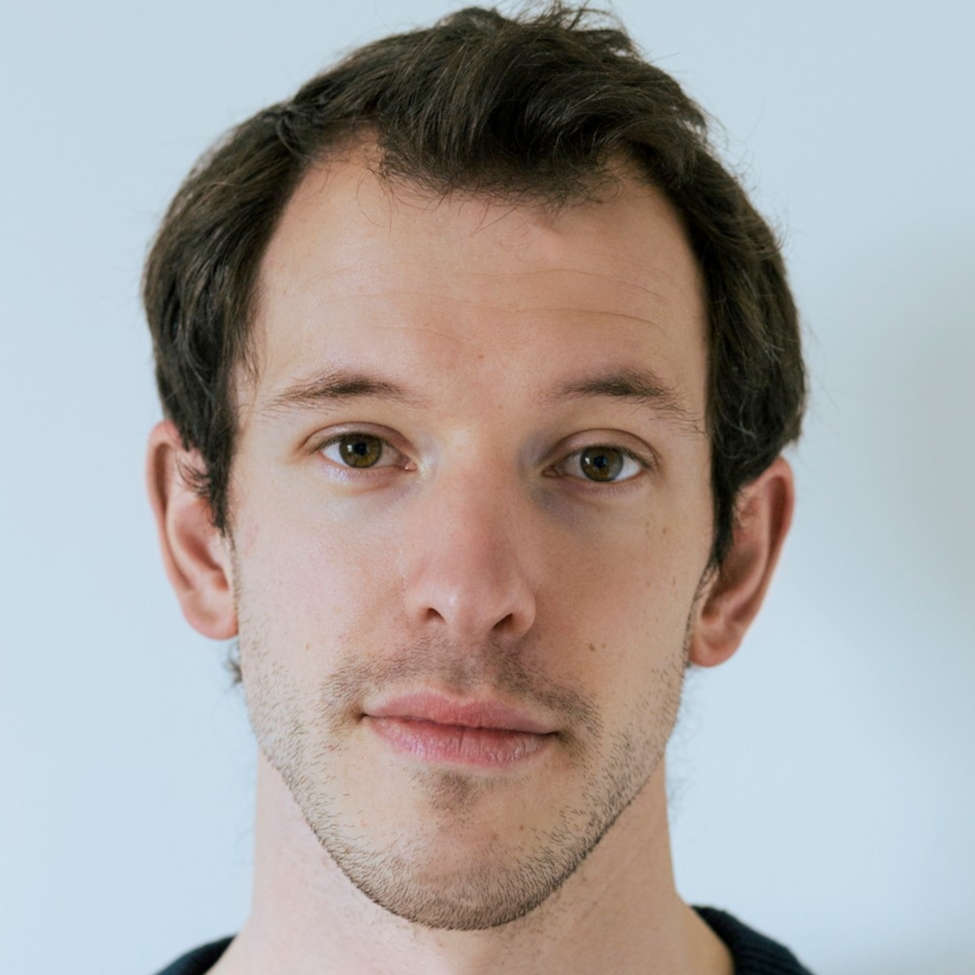Matteo Jorgenson: Movistar can't let me race Worlds
US rider wanted to go but skips Australia to chase points for his team as they try to avoid WorldTour relegation

Every point matters when it comes to WorldTour survival and as the fight intensifies in the dying embers of this racing season, the UCI's relegation system is affecting their own Road World Championships. Movistar rider Matteo Jorgenson is the latest rider who has been stopped from racing in Australia by his team.
"I wanted to and I got selected, but the team can't let me go," he told Cyclingnews before stage 3 of the Tour of Britain - he left the race a day later before the stage 4 start. It is the same scenario for his veteran teammate Alejandro Valverde. Movistar currently sit approximately 300 points above Lotto Soudal and therefore potential relegation, though they will gain a precious buffer if Enric Mas finishes on the Vuelta a España podium.
"I totally understand – we're in a situation where I'm in the top 10 in points for the team, so for me to go to Worlds would be losing two or three weeks of racing … I'd probably lose seven or eight one-day races, which are super crucial in the points battle. It's a bit of a shame, but I just want to make the best of it and try to win a race."
The genial Idaho man instead has a string of Italian 1.Pro and 1.1 one-day races on his schedule. Victory in one would be worth 200 and 125 points, respectively.
"The relegation system was built to bring big teams to the smaller races, to try to force us to want to go to small races in Belgium or Italy, that before we had no reason to go to," Jorgenson said.
"It was built with good intentions, but to go forward and use it for something completely different? To put teams at risks? I don't think a lot of people realise when teams get relegated that these sponsors pay to be WorldTour. There's no security in a team continuing once you bring them down to Pro Conti.
"In the end, you're maybe causing teams to end. It's a hard situation. But that's the way it is and we did know about it, there's no excuse. We'll try to make the best of it."
The latest race content, interviews, features, reviews and expert buying guides, direct to your inbox!
It has been a season of two halves for the third-year pro. A torn hamstring at Paris-Nice meant three months away from racing, but the break allowed him to build up to the Tour de France, where he came close to a stage victory. Jorgenson had two fourth places – on stage 10 in Megève, metres behind Magnus Cort, and stage 16 into Foix, where Hugo Houle (Israel-Premier Tech) won solo.
"It was a good Tour. After some reflection, it was super positive. There wasn't much more I could have done. Trying to watch those stages back, I think I did a good job and it was complicated trying to win," he said.
During a refreshing period back home in the US after the race, he closely re-watched the breakaway stages to glean future insights.
"I was trying to analyse what objectively I could have done differently. When you're in the race, you see things differently, you don't see the whole situation," Jorgenson said. "Watching it back, I saw the tactical perspective, the things I did well and the things I missed. It helped me a lot. In the future, I just need to be a little bit more aware in the finals. A couple of the stages, some of it was luck, some of it was following the right moves."
Jorgenson is still discovering what kind of rider he is, having finished in the top 20 of races as diverse as Milan-San Remo, Paris-Nice and the Tour de France.
"I don't know how to figure that out," he said. "I'm at a size where being a pure climber and trying to do GC at a Grand Tour probably isn't going to be possible, where you need to do a certain watts per kilo multiple days in a row, just because of how tall [1.9 metres] I am. Crunching the numbers, it doesn't make sense.
"But I can see that I climb well and that's one of my strengths. So going forward, being in the break a couple of times in the Tour really inspired me. It made me want to try and do that more. Just losing time on GC on purpose in the beginning and going for those stages.
"It's a fun battle, a fun challenge. You really have to use your brain and solve a puzzle. It's random and there's a lot of factors, it's always exciting."
Formerly the editor of Rouleur magazine, Andy McGrath is a freelance journalist and the author of God Is Dead: The Rise and Fall of Frank Vandenbroucke, Cycling’s Great Wasted Talent
